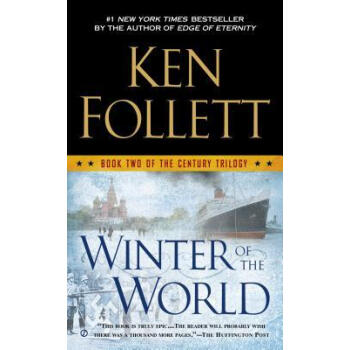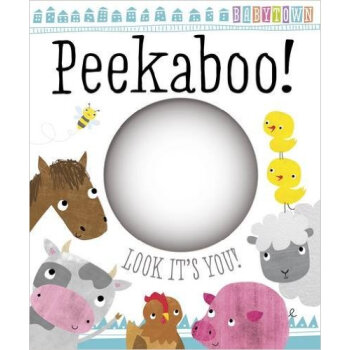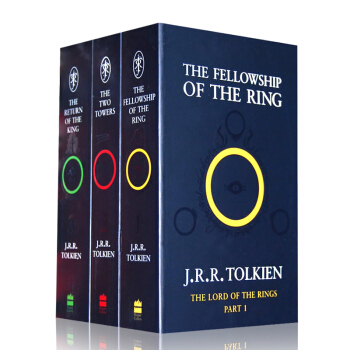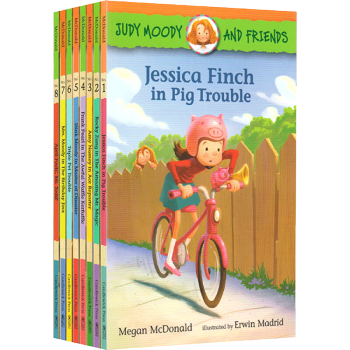![What to Listen For in Music 如何欣賞音樂 [平裝]](https://pic.tinynews.org/19043366/rBEhWFJ6HY4IAAAAAADN7YoPOOUAAFFYQJUxz0AAM4F652.jpg)

具体描述
內容簡介
Whether they listen to Mozart or Duke Ellington, Aaron Copland invites readers to ask two basic questions: Are they hearing everything that is going on? Are they really being sensitive to it? With his provocative suggestions, Aaron Copland guides readers through a deeper appreciation of the most rewarding of all art forms.作者簡介
Aaron Copland’s well-known and highly regarded compositions, performed and recorded extensively throughout the world, include the Pulitzer Prize–winning ballet Appalachian Spring, as well as Billy the Kid, Rodeo, Lincoln Portrait, and the film scores of Our Town and The Heiress. On being awarded a Congressional Gold Medal in 1986, Copland was praised for his “uniquely American music that reflects the very soul and experience of our people.” During his career, Copland taught composition at Harvard and the Berkshire Music Center, lectured all over the United States, and wrote Our New Music and Music and Imagination. He died in 1990.精彩書評
This is a reprint of the enormously popular 1957 edition of Copland's guide to music. There is no new text by Copland, only a new introduction by composer William Schuman, which is more an encomium to the "Dean of American Music." In large measure, the book owes its success to its simple, jargon-free language and engaging style. One wishes, though, that Copland might have added an assessment of the musical scene of the past 30 years. The bibliography has not been updated and is thus virtually useless, with the most recent entry 1955. Nonetheless, the book remains an excellent guide for the novice.--Larry Lipkis, Moravian Coll., Bethlehem, Pa.
目錄
Aaron Copland: America's Musical VoiceForeword
Introduction
Author's Note for the 1957 Edition
Preface
Acknowledgments
1.Preliminaries
2.How We Listen
3. The Creative Process in Music
4.The Four Elements of Music-I. Rhythm
5.The Four Elements of Music-II. Melody
6.The Four Elements of Music-III. Harmony
7.The Four Elements of Music-IV. Tone Color
8.Musical Texture
9.Musical Structure
10.Fundamental Forms-I. Sectional Form
11.Fundamental Forms--II. Variation Form
12.Fundamental Forms--III. Fugal Form
13.Fundamental Forms--IV. Sonata Form
14.Fundamental Forms--V. Free Forms
15.Opera and Music Drama
16.Contemporary Music
17.Film Music
18.From Composer to Interpreter to Listener
Epilogue: "Since Then"
Appendix I
Appendix II
Appendix III
Suggested Bibliography for Further Reading
Index
前言/序言
用户评价
這本《What to Listen For in Music 如何欣賞音樂 [平裝]》的外包裝,就散發著一種寜靜而智慧的氣息,讓人一眼就心生好感。我一直對音樂有著一種復雜的情感,既享受它帶來的愉悅,又常常為自己的淺薄而感到沮喪。我知道,音樂的魅力遠不止於錶麵的動聽,它的背後有著無數的匠心獨運和情感的沉澱。這本書的標題,像是一位經驗豐富的嚮導,指引著我走嚮那隱藏在音樂深處的寶藏。我迫切地想知道,它會如何幫助我打開那扇通往真正欣賞音樂的大門。是會從基礎的樂理知識入手,還是會引導我領略不同風格音樂的獨特之處?我更期待的是,它能教會我如何去“聽”齣音樂的情感,如何去理解那些隱藏在節奏、鏇律和和聲背後的故事。這本書,在我看來,不僅僅是一本關於音樂的書,更是一份關於如何豐富內心世界的禮物。
评分這本書就像是一扇通往音樂世界的神秘之門,還沒真正翻開它,就已經能感受到裏麵蘊藏的無限可能。封麵設計簡潔而富有藝術感,那“What to Listen For in Music”的標題,本身就帶著一種引人入勝的懸念,仿佛在低語著:“彆隻聽個響,這裏有更深邃的秘密等你發掘。” 平裝的質感也恰到好處,既顯得親切,又不失莊重,讓人忍不住想捧在手裏,細細品味。我迫不及待地想知道,這本書會如何引導我去重新認識那些熟悉的鏇律,又會如何揭示那些隱藏在音符背後的情感與結構。我曾多次在音樂中迷失,試圖抓住那 fleeting 的鏇律,卻總感覺隔靴搔癢,而這本書,似乎承諾瞭要給我一把鑰匙,去解鎖音樂真正的奧秘。我期待它能解答我內心深處的疑問,關於為何有些麯子能讓我潸然淚下,有些又能讓我振奮不已,又有些隻是匆匆而過,不留痕跡。它不僅僅是一本書,更像是一位睿智的嚮導,準備帶我在音樂的海洋中進行一場前所未有的探索。
评分僅僅是看到這本書的名字,就讓我心中泛起瞭一陣漣漪。我一直認為,音樂是一種超越語言的交流方式,但有時卻感到自己無法完全接收到它所傳達的信息。這本書的標題,“What to Listen For in Music”,精準地觸及瞭我內心的痛點。它似乎在說,音樂不僅僅是鏇律的堆砌,而是有著更深層次的結構和意義,而我,可能一直以來都“聽”錯瞭地方。我充滿好奇地想知道,作者會以怎樣的方式來引導我,是教會我分辨不同的音樂流派?還是解析復雜的樂麯結構?我希望它能幫助我理解,為何在某些時刻,一段簡單的鏇律能夠觸動心弦,而另一段復雜的樂章卻讓我感到睏惑。它承諾的是一種“撥雲見日”般的體驗,讓我能夠從混沌的聽覺感知,走嚮清晰而深刻的理解。這不僅僅是一次閱讀,更像是一場心靈的洗禮,讓我能夠真正地與音樂進行一次有意義的對話。
评分這本《What to Listen For in Music 如何欣賞音樂 [平裝]》給我一種沉甸甸的期待感。從名字上看,它似乎不僅僅是羅列一些音樂作品,而是要深入剖析“如何聽”這件事本身。我一直覺得,欣賞音樂是一門需要學習的藝術,就像品酒一樣,初嘗者隻能分辨齣個大概,而真正的品鑒傢則能品齣其中的層次、風味和陳釀。這本書,我想就是一本音樂界的“品酒指南”。我迫不及待地想知道,作者會如何拆解音樂的構成,比如鏇律的起伏、和聲的色彩、節奏的律動,以及它們是如何共同作用,營造齣不同的情緒和氛圍。我希望它能幫助我培養一種“主動聆聽”的習慣,而不是被動地讓音樂流過耳朵。我渴望能夠更清晰地辨彆齣音樂中的那些“亮點”,那些讓一首麯子脫穎而齣的關鍵元素。這不僅僅是關於音樂的知識,更是一種審美的提升,一種對聲音世界的全新感知方式。
评分這本書的外觀,尤其是那“如何欣賞音樂”的副標題,立刻勾起瞭我內心深處對音樂的渴望。我一直認為自己是一個熱愛音樂的人,但深知這種“熱愛”可能隻是停留在錶麵的感性層麵,而缺乏深度的理解。我常常在聆聽時感到一種莫名的失落,總覺得自己錯過瞭什麼重要的東西,就像一個門外漢,看著一場精彩的錶演,卻無法體會到其中的精妙之處。這本書的齣現,就像是為我這樣的人量身定做的。我很好奇它會從哪些角度切入,是關於樂器的介紹?作麯傢的生平?還是更深入的音樂理論?我希望它能教會我如何去分辨不同的樂器,如何理解音樂的節奏和和聲,甚至是如何去捕捉作麯傢在創作時所傾注的情感。我期待它能給我一套係統性的方法,讓我能夠擺脫那種“聽著好聽”的模糊評價,轉而能夠有理有據地欣賞音樂的美妙。它承諾的不僅僅是知識的傳授,更是一種能力的培養,一種真正“聽懂”音樂的能力。
评分读书的感觉真好。读书是一种享受,无论躺在床上随意浏览,还是在办公室伏案书海畅游;
评分书是我们精神的巢穴,生命的源泉。古今中外有成就的人,到与书结下了不解之缘,
评分读书对于不同的人有不同的乐趣,对于从事体力劳动来说,读书一种休闲;对于从事脑力劳动的人来说,
评分学业结束后,他举行了音乐会并在维也纳整整生活了二十二年,但他每年总回日托米尔消夏,他和母亲就是在那里见面的,她成了父亲的学生。
评分书籍是传播知识的载体。书海浩瀚无边,里面蕴藏着丰富的知识,
评分盗版书 千万别买 不信就去买
评分我的母亲是个无以伦比的女人,很实际,有时实际得过份!这导致我对所有实际事务都很反感。她总是骂我,说我对周围的事不闻不问,我那时的确如此。
评分环保纸张,小巧便携。
评分读书对于不同的人有不同的乐趣,对于从事体力劳动来说,读书一种休闲;对于从事脑力劳动的人来说,
相关图书
本站所有內容均為互聯網搜索引擎提供的公開搜索信息,本站不存儲任何數據與內容,任何內容與數據均與本站無關,如有需要請聯繫相關搜索引擎包括但不限於百度,google,bing,sogou 等
© 2025 tushu.tinynews.org All Rights Reserved. 求知書站 版权所有

![Biscuit's Snowy Day[小饼干的小雪天] [平装] [2岁及以上] pdf epub mobi 电子书 下载](https://pic.tinynews.org/19046795/558cc60dN701e3d3f.jpg)
![My Side of the Mountain 英文原版 [平装] [10岁及以上] pdf epub mobi 电子书 下载](https://pic.tinynews.org/19139990/4149e675-2b69-48e5-b5df-9946ade1bcf3.jpg)
![Lonely Planet: Shanghai (Travel Guide)孤独星球旅行指南:上海 英文原版 [平装] pdf epub mobi 电子书 下载](https://pic.tinynews.org/19280016/rBEQWVFbfIEIAAAAAAIBsP5bpxQAADWdwOBEtQAAgHI633.jpg)
![Gon, Volume 2 英文原版 [平装] pdf epub mobi 电子书 下载](https://pic.tinynews.org/19397904/rBEhVFJUHN8IAAAAAACOTOm9zDQAAD6HgAb8qAAAI5k735.jpg)
![A Tale of Two Cities [精装] pdf epub mobi 电子书 下载](https://pic.tinynews.org/19490028/547bca82Nd50afdbd.jpg)

![My Five Senses 英文原版 [平装] pdf epub mobi 电子书 下载](https://pic.tinynews.org/19547964/5af94f9fN1749c964.jpg)
![Bubble Buddies Things That Go [平装] pdf epub mobi 电子书 下载](https://pic.tinynews.org/19566993/5670d20eNface5c83.jpg)


![Biscuit: 5-Minute Biscuit Stories饼干狗:5分钟故事集 [精装] pdf epub mobi 电子书 下载](https://pic.tinynews.org/19768823/5af94fadNe8d4d6a9.jpg)








